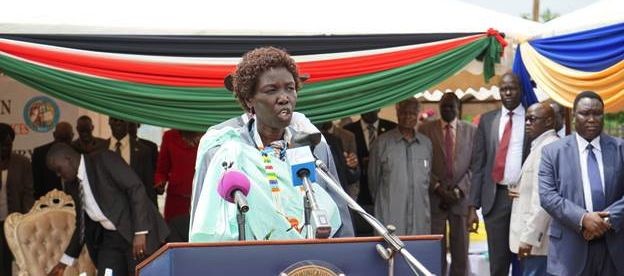Rebecca Joshua, Minister of Telecommunications and Postal Services, says the South Sudanese government is aiming for the introduction of high speed internet in the country within a year.
Internet communications are very poor in South Sudan because access via satellite internet providers is slower and more expensive compared to internet access in neighbouring countries. Most local, state and national government offices do not have internet access.
During a speech at the opening of a new ministry building, she pointed out that South Sudan is “one of only two African countries to have not yet joined the global super highway through a sub-marine cable system.”
She said that they are attempting to connect to the coast through Eritrea, Ethiopia or Kenya within the next 12 months, or through Kenya via Uganda.
Joshua also said that the government would establish a National Communications Authority (NCA) to regulate communications nationwide. She said they are currently recruiting candidates to lead the NCA and see it operationalised.
The minister explained also that the government is looking to procure a bandwidth provider for its own operations: “Once installation is complete, all government ministries, departments and agencies from the national to the state level will have reliable internet communications.”
For his part, the President of South Sudan speaking on the same occasion linked the government’s plans to a commitment made by African heads of state in Kigali in October 2007 to link all capital cities and major towns by broadband by the year 2012 and all rural communities by 2015.
Salva Kiir said the government is committed to “ensuring the provision of universal and affordable services to all South Sudanese… Our priorities in this regard is to devise a national optical fibre cable linking all the state capitals and other major towns.”
“The government has formed a national committee to speed up the process of designing and building the national backbone through the competitive selection of qualified global private sector partners,” he noted.




